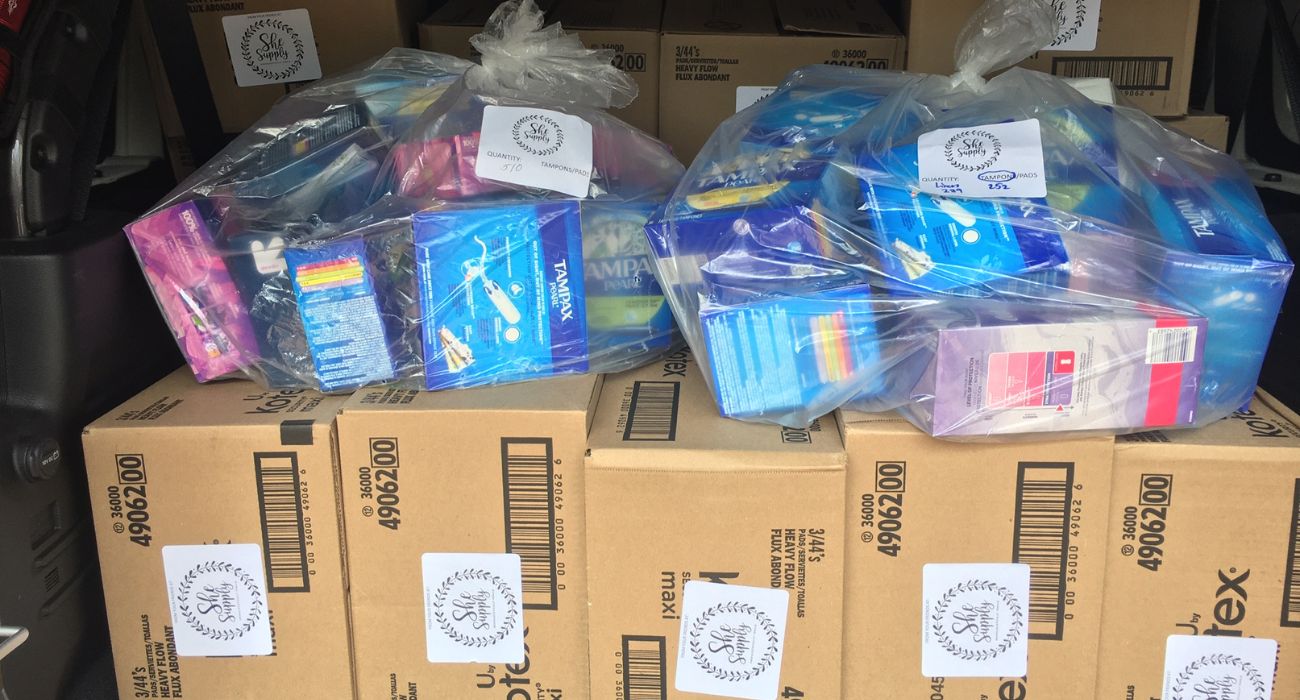She Supply is a non-profit organization with dedicated volunteers on a mission to make sure lower-income women and girls in North Texas have the feminine hygiene products they need.
The Dallas Express had the opportunity to speak with founding board member and board-certified psychiatrist Dr. Lisa Pierce Johnson and Denise Angarola, chairwoman of She Supply, which is based in Flower Mound.
She Supply’s stated mission is to “provide a sense of dignity and cleanliness to women in need, and our goal is to end period poverty. We do that by providing women with monthly feminine hygiene products, basic necessities that most of us take for granted.”
“No one thinks of feminine hygiene products as a necessity unless they are actually using them,” said Johnson. When She Supply was founded in 2016, feminine hygiene products were taxed in Texas under a luxury tax.
It was not until September 1, 2023, that Texas enacted a law removing the tax on feminine hygiene products. This decision eliminated the sales tax on items such as tampons, menstrual pads, and menstrual cups, making feminine hygiene products more affordable for individuals of limited means.
The impact of the law was significant at multiple levels, explained Angarola.
“Now this means services like the Lone Star or the WIC card can be used to purchase feminine hygiene products, whereas, before September 1 of last year, you couldn’t because these items were considered ‘luxury items,'” she said.
More than 2,400 women without stable shelter live below the federal poverty line in North Texas, and Johnson noted that homelessness and poverty continue to grow in the region. Women in those circumstances face significant challenges in meeting their basic needs and often must choose which needs get met and which do not.
Since 2018, around 25% of women have struggled to purchase period products due to a lack of income, said Angarola.
“We also know that 1 in 3 low-income women miss work or the girls in the household miss school because they do not have access to products cyclically,” she asserted.
Since 2016, She Supply has delivered 1,393,599 products and has funded 107,430 cycles in North Texas. The primary counties She Supply serves are Dallas, Denton, Tarrant, and Collin, where they help women who do not have stable housing.
The organization partners with 21 providers to offer supplies, including homeless shelters, food pantries, and domestic violence service providers. The model of going through partner organizations rather than directly assisting those in need allows She Supply to cast a wider net.
“We can have a bigger impact when [recipients] are already receiving services from an agency they are familiar with. It is a smarter model because they also get the wraparound services. If you don’t have access to period products, you probably don’t have access to food, clothing, or shelter,” explained Johnson.
Even still, She Supply’s greatest challenge has been that “the need greatly exceeds the products that we have,” said Johnson. “You don’t ever want to say no.” As such, they rely heavily on donors to help, either by donating financially or by helping fill the Amazon wish list, which includes items ranging from $6.90 to $31.12.
“One of the ongoing new needs is the teen segment — teen pads,” said Angarola. “More and more of our population is multigenerational. We also work a lot with Title 1 schools.”
She explained that there are girls in third grade who are getting their menstrual cycle, and a regular-sized pad is not suitable. “We’re seeing our population get younger and younger. On our wish list site, you will see there are teen pads,” she said.
In addition to pads and tampons, which are “often the most requested items at homeless shelters” but also “the least donated,” according to Angarola, She Supply also provides free new underwear to women in domestic violence shelters. These items are also on their wish list.
“We provide underwear to the domestic violence shelters because often the women who come in [these shelters] have been subjected to a SANE exam — a sexual assault nurse exam — and they are left with the panties that they came in with or used for evidence. Who wants to put on those panties after you’ve had a sexual assault? So it has a different meaning [to offer new underwear] — it is a needed service and helps with their mental health,” explained Johnson.
“$25 provides products to a woman for one year because of our bulk buying power,” said Angarola. Donors can sign up online to sponsor up to 20 girls and women annually or choose a custom donation amount. “Donation dollars stretch very far,” she said.
“We would also love to have more volunteers,” added Angarola. Information on volunteering and upcoming events can be found on the She Supply website. “The biggest impact is education around the need.”
“Products are getting more expensive,” said Angarola. “25% of women are having to regularly choose between food for their children, or the extra money they need for the light bill or rent, or buying feminine hygiene products for themselves,” and more times than not, women go without.
“It is a lot closer to home than people think,” said Angarola.



